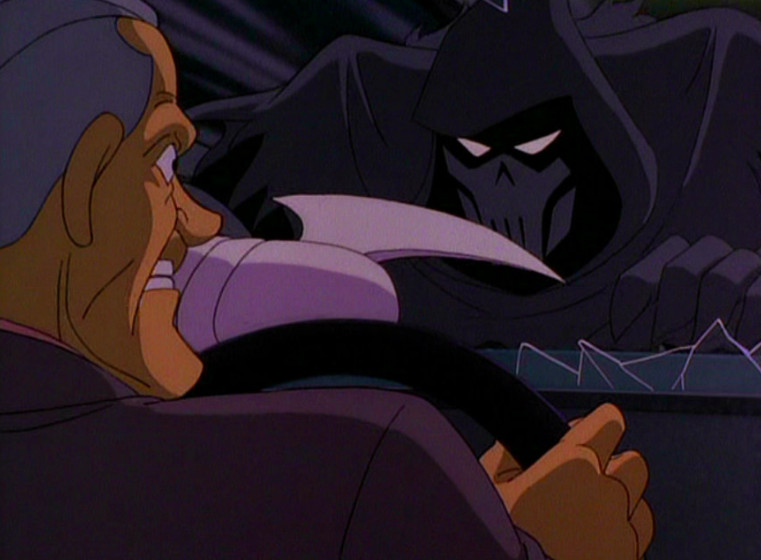Liking Batman: Mask of the Phantasm is a bit like being someone who is super into vinyl. Tell people it’s your favorite movie take on Batman, and you run the risk of sounding like an incredible snob; a contrarian that somehow feels the need to like something other than a bunch of very good live-action movies that lots of other people adore. Regardless, it’s a movie worth celebrating — not because it is better than its live-action siblings, but because it’s maybe the most complete take on Batman and Bruce Wayne on film.
Batman: Mask of the Phantasm, now on Netflix, was an attempt to leverage the Emmy-winning success of Batman: The Animated Series into a theatrical hit. It didn’t quite take, bombing at the box office despite critical acclaim — but like a lot of cult favorites, it gained a strong fanbase in its home video release. As an extension of the show, Mask of the Phantasm deftly walks a tightrope between standalone story and movie that enriches some stories from the TV show.
:no_upscale()/cdn.vox-cdn.com/uploads/chorus_asset/file/20150254/Screen_Shot_2020_07_24_at_11.59.20_AM.png)
Mask of the Phantasm is a murder mystery. There’s a new cloaked vigilante in Gotham City, and they’re offing some of the town’s most prominent gangsters. The eponymous Phantasm’s fondness for shadows and theatricality leads people to mistake them for Batman (Kevin Conroy), who is then framed for murders he did not commit. However, these dead gangsters all appear to be connected, and those connections go back to Bruce Wayne’s earliest days fighting crime, before he became the Batman.
In following this thread, Mask of the Phantasm dives into something that The Animated Series never did, by design: Batman’s origin. And despite being tucked into a far-too-brief 75-minute film, it’s the most well-rounded portrayal of the character’s beginnings, because it’s willing to portray Bruce Wayne as earnest and corny, someone that’s a little ridiculous. The Bruce Wayne of Mask of the Phantasm’s flashbacks isn’t taken seriously by criminals; he’s overzealous in his vigilantism, so convinced of his own fierceness he ends up being more funny than intimidating.
It doesn’t shy away from the idea of Batman as something tragic and awful
He’s also in love: a chance encounter with Andrea Beaumont (Dana Delaney) blossoms into full-blown romance, a relationship that makes him question his crime-fighting mission. Beaumont is Mask of the Phantasm’s greatest addition to the well-worn Batman story, a tragic figure that suffers from a similar trauma as young Bruce Wayne and follows it down a different path.
Despite being a film primarily for children, Mask of the Phantasm is surprisingly complex in its characterization of its protagonist. It doesn’t shy away from the idea of Batman as something tragic and awful for a human to be. Like Christopher Nolan’s films at their best, it’s a story that views becoming Batman not as something noble, but something deeply tragic. It also does this while doing all the other stuff The Animated Series was very good at in its portrayal of Batman: rendering him as a presence that was both intimidating and wry, a vigilante that could be grim or witty as he saw fit.
There isn’t exactly a shortage of Batman anywhere — he’s still among the most popular comic book superheroes in existence, with yet another new take in the works — but when it comes to movies, his portrayal is often quite narrow. It’s a relatively flat depiction of a wonderfully complicated character, limited to a handful of emotions and story types when his comic book (and TV!) history has shown the character to be far more elastic than that. Batman: Mask of the Phantasm is a movie that has just about everything a person could like from the most popular live-action movies, and a little bit more.
